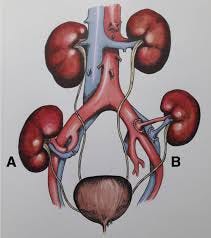A kidney transplant is a surgical procedure where a healthy kidney from a living or deceased donor is implanted into a recipient whose kidneys treatment have failed or are functioning at a critically low level. This procedure provides a long-term solution to kidney failure, offering recipients a chance to regain near-normal kidney function and significantly improve their quality of life.

Candidates for Kidney Transplant:
- End-Stage Kidney Disease (ESKD): Individuals whose kidneys have lost nearly all their ability to function, leading to dangerous levels of waste products and fluids in the body, are candidates for a kidney transplant.
- Chronic Kidney Disease (CKD): In some cases, individuals with advanced CKD that is progressing rapidly may be considered for a transplant before reaching ESKD to improve long-term outcomes.
- Health Status: Candidates must be in relatively good health apart from their kidney condition. They should be free from active infections, cancers that could affect transplant success, and serious heart or lung diseases that would increase surgical risks.
- Psychosocial Factors: Factors such as a strong support system, good understanding of the transplant process, and ability to adhere to post-transplant care are important. Mental health stability and absence of substance abuse issues are also considered.
- Age: There is no strict age limit for kidney transplantation, but candidates must be healthy enough to undergo surgery and manage post-transplant care.
- Immunological Compatibility: The recipient’s immune system must be evaluated to ensure compatibility with the donor kidney. This involves testing for human leukocyte antigens (HLA) and assessing for pre-existing antibodies that could lead to rejection of the transplanted organ.
Procedure Overview:
- Donor Selection: Donors can be living related (family members or individuals with a close relationship to the recipient) or living unrelated (emotionally related individuals or altruistic donors), or deceased donors whose organs are allocated based on waiting list criteria.
- Surgery: The transplant surgery involves placing the donated kidney into the recipient’s lower abdomen and connecting the renal artery, vein, and ureter to the recipient’s blood vessels and bladder. The surgery typically lasts a few hours.
- Post-Transplant Care: After surgery, recipients require lifelong immunosuppressive medications to prevent rejection of the transplanted kidney. Regular follow-up with healthcare providers is essential to monitor kidney function, manage medications, and address any complications.
Benefits of Kidney Transplantation:
- Improved Quality of Life: Transplant recipients often experience improved energy levels, reduced symptoms of kidney failure, and greater dietary and lifestyle freedom compared to dialysis.
- Long-term Survival: Kidney transplantation generally offers better long-term survival rates compared to remaining on dialysis.
- Psychosocial Benefits: It allows recipients to return to a more normal life, including work, travel, and family activities, without the constraints of dialysis.
In conclusion, kidney transplantation is a life-saving treatment for individuals with kidney failure, offering the potential for a longer and better quality of life compared to dialysis. Eligibility for transplantation depends on various medical, psychological, and logistical factors, and candidates must undergo thorough evaluation and preparation before undergoing this major surgical procedure.
Comments
Post a Comment